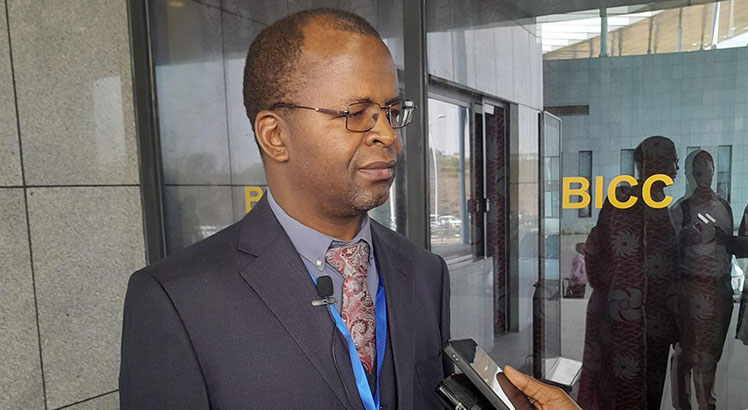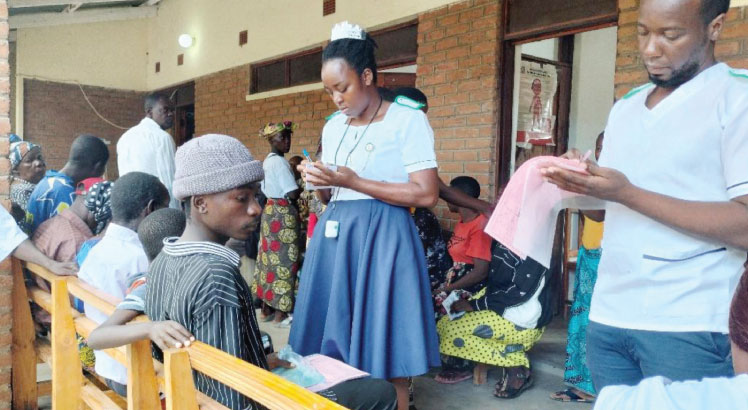Hospitals to get direct funding
Ministry of Health is introducing direct facility financing (DFF), a system that will see the country’s public health facilities including health centres start getting public funding directly from the Treasury.
In an interview on Sunday, Ministry of Health Principal Secretary Samson Mndolo said the new system which is currently being implemented in Rumphi in the pilot phase, is targeting all primary level facilities such as health centres and community hospitals.

He believed that the DFF will help to improve health facility operations as it will streamline the flow of funds, reduce administrative overheads and allow resources to reach facilities more quickly and enable swift procurement of essential supplies among others.
Said Mndolo: “We rolled out the program in Rumphi in all 15 primary health facilities. In the 2024/2025 financial year, we plan to extend the programme to at least 13 more districts and fully roll out to all facilities in the 2025/26 financial year.”
He said the current programme in Rumphi is being implemented with support from the Foreign and Commonwealth Development Organisation and that the system is part of the implementation of the ministry’s health financing strategy 2023-2030.
“DFF empowers healthcare facilities to tailor their services according to local needs and priorities. They have the flexibility to invest in innovative solutions, implement evidence-based practices, and adapt strategies to address emerging health challenges promptly.

“It also eliminates the bureaucracy that currently exists to get issues sorted at the facility level; instead of waiting for the district council to mostly provide support in kind, issues are resolved more efficiently,” he said.
Reacting on the matter, Malawi Health Equity Network executive director George Jobe welcomed the development, saying that is what his organisation has been advocating for during the pre-budget consultative meetings for the past four years.
He noted that some facilities have been failing to address some crucial emergencies that required small needs as they expect all the resources to come from district councils through district health offices.
“This is going to help to improve the working conditions of our healthcare workers and the service delivery. It is also going to help with efficiency.
“For instance if there are some water leakages, these facilities would use these funds to hire a plumber and fix the problem right away. The same can also apply on other essential suppliers unlike the current status where they wait for councils to act,” said Jobe.
The new system comes at a time the delayed disbursement of funds for other recurrent transactions (ORT) and general resource fund (GRF) has been paralysing operations of local councils in sectors such as health, education and agriculture.
An evaluation of funding challenges in the Malawian public healthcare delivery sector carried last year by consultant Rabiya Hanif and Wedzerai Musvoto revealed that reliable and adequate healthcare funding is crucial in public healthcare service delivery. However, district hospitals in Malawi face funding challenges as evidenced by poor service delivery.
The study revealed that government funding is received late and is inadequate; donor funding was declining and earmarked for specific health activities; while income generation capacity of hospitals and councils is weak.
The study recommended that hospitals should introduce fees for service, government should be lobbied for increased funding allocations, and revenue–generating capacity of hospitals and councils should be enhanced.
It also concluded that there is an urgent need for the government to prioritise the healthcare delivery sector and increase its funding.
“Hospitals and councils should be innovative to generate additional funding for operations and the revenue generation capacity of hospitals and councils should thus, be enhanced,” reads part of the study released in May 2023.
Malawi Local Government Association (Malga) 2023 assessment found that 23 percent of the 99 public health facilities in five districts had no running water in their maternity and outpatient departments due to delayed funding.





